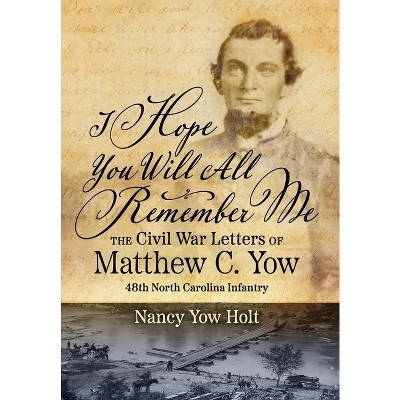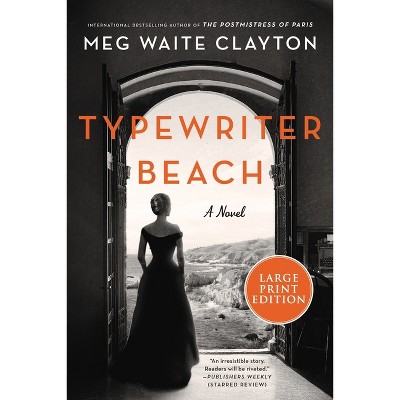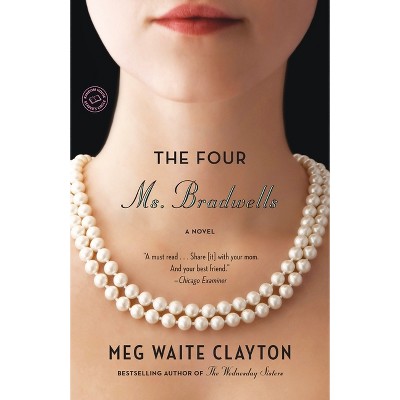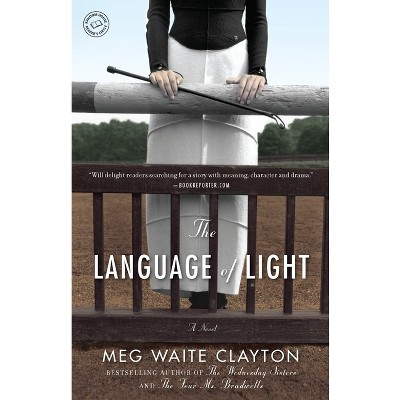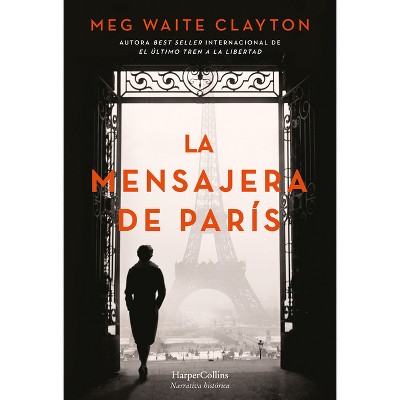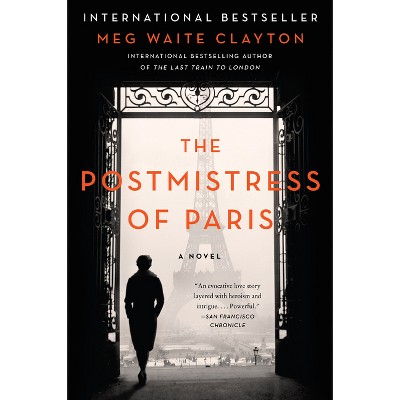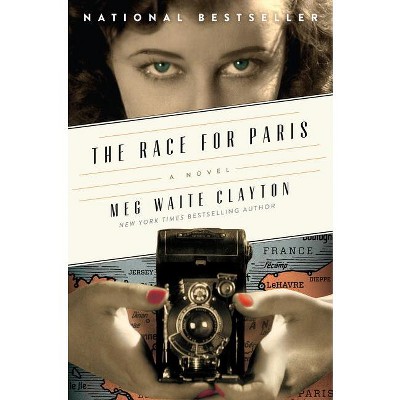Sponsored

Typewriter Beach - by Meg Waite Clayton
In Stock
Sponsored
About this item
Highlights
- Instant USA Today Bestseller - Washington Post 5 Works of Historical Fiction to Read This Summer - Top 10 Library Read - Los Angeles Times 10 Reads for a Beach Day - Publishers Weekly Summer Read - Woman's World Book Club Pick - Zibby Books That'll Make You Swoon - AARP Summer ReadSet in Carmel-by-the-Sea and Hollywood, Typewriter Beach is an unforgettable story of the unlikely friendship between an Oscar-nominated screenwriter and a young actress hoping to be Alfred Hitchcock's new star.
- Author(s): Meg Waite Clayton
- 320 Pages
- Fiction + Literature Genres, Historical
Description
About the Book
"Set in Carmel-by-the-Sea and in 1950s Hollywood-in the days of the studio system and McCarthy-era scaremongering about an America "riddled with communists and homosexuals"-Typewriter Beach is the unforgettable story of an unlikely friendship between an Oscar-nominated screenwriter and a young actress hoping to be Alfred Hitchcock's new star. 1957. Isabella Giori is ten months into a standard 7-year studio contract when she auditions with Hitchcock. Just weeks later, she is sequestered by the studio's "fixer" in a charming little Carmel-by-the-Sea cottage for a secret rendezvous. There, she is awoken by the clack and ding of a typewriter at the cottage next door. Lâeon Chazan is annoyed as hell when Iz interrupts his work on yet another screenplay he won't be able to sell, because he's been blacklisted. But soon he's speeding down the fog-shrouded Carmel-San Simeon highway, headed for the isolated cliffs of Big Sur, with her in the passenger seat. 2018. Twenty-six-year-old screenwriter Gemma Chazan, in Carmel to sell her grandfather's cottage, finds a hidden safe with a World War II-era French passport, an old camera with film still in it, two movie scripts, and a writing Oscar that is not in her grandfather's name-raising questions about who the screenwriter known simply as Chazan really was. In its exploration of Hollywood and Carmel-by-the-Sea, Typewriter Beach is a heartwarming tale of long-buried secrets; sisterhood and sexism; the importance of free speech, story, and name; and what it means to be family"--Book Synopsis
Instant USA Today Bestseller - Washington Post 5 Works of Historical Fiction to Read This Summer - Top 10 Library Read - Los Angeles Times 10 Reads for a Beach Day - Publishers Weekly Summer Read - Woman's World Book Club Pick - Zibby Books That'll Make You Swoon - AARP Summer Read
Set in Carmel-by-the-Sea and Hollywood, Typewriter Beach is an unforgettable story of the unlikely friendship between an Oscar-nominated screenwriter and a young actress hoping to be Alfred Hitchcock's new star.
1957. Isabella Giori is ten months into a standard seven-year studio contract when she auditions with Hitchcock. Just weeks later, she is sequestered by the studio's "fixer" in a tiny Carmel cottage, waiting and dreading.
Meanwhile, next door, Léon Chazan is annoyed as hell when Iz interrupts his work on yet another screenplay he won't be able to sell, because he's been blacklisted. Soon, they're together in his roadster, speeding down the fog-shrouded Big Sur coast.
2018. Twenty-six-year-old screenwriter Gemma Chazan, in Carmel to sell her grandfather's cottage, finds a hidden safe full of secrets--raising questions about who the screenwriter known simply as Chazan really was, and whether she can live up to his name.
In graceful prose and with an intimate understanding of human nature, Meg Waite Clayton captures the joys and frustrations of being a writer, being a woman, being a star, and being in love. Typewriter Beach is the story of two women separated by generations--a tale of ideas and ideals, passion and persistence, creativity, politics, and family.
Review Quotes
"This fast-paced nov-el details the dele-te-ri-ous, life-chang-ing effects of Sen-a-tor Joe McCarthy's anti-com-mu-nist cam-paign on the writ-ers, actors, and direc-tors of Hollywood . . . . The author describes set-tings and moods in vivid detail, let-ting read-ers imag-ine being sur-round-ed by the nat-ur-al beau-ty of Carmel-by-the-Sea. Type-writer Beach is a fas-ci-nat-ing look into a recent piece of Amer-i-can his-to-ry that is so rel-e-vant in today's polit-i-cal and social climate." - Jewish Book Council
"Typewriter Beach is a gorgeous work of fiction that reads like a memoir. As Meg Waite Clayton invents Iz's story, she reveals some of the dirty laundry of Hollywood's early days and gives readers a glimpse at its stars' foibles, faults and quirks. She allows us to feel the dread of the HUAC, a terrifying time in history, using Leo as an example. His backstory will tug at heartstrings as much as Iz's main story. This multilayered novel satisfies on many levels and is not to be missed." - Bookreporter.com
"5 Challah rating--Typewriter Beach is a wonderfully woven story with unexpected twists and connections. Written from alternating perspectives, it redefines family." - Jewish Voice and Opinion
"Meg Waite Clayton pulls the reader into the story with nuanced, believable characters and prose that tells 'just enough' to keep reading until the end. . . . Typewriter Beach is not just a captivating story about Hollywood in the 50's and 60's or another examination of what family is about, it is also a portrait of the strength and importance of friendship and an intense look at the effect that the sowing of distrust can have on society." - Gloss Book Club
"This riveting historical brings McCarthy-era Hollywood to life . . . . I loved this story for its propulsive plot and riveting period details, most especially the numerous lovely portrayals of people finding love and family even when they'd given up hope of it happening for them in an unkind world." - Modern Mrs Darcy
"Clayton delivers another top-tier dual-timeline historical. Thought-provoking and timely, it's sure to be a big summer hit." - Library Journal (starred review)
"Under the shimmer of 1950s movie magic and the shadows of the McCarthy era, this romantic, moody mystery spotlights life in front of the camera." - Shelf Awareness
"Readers are taken to 1950s California in this riveting saga. . . . As secrets emerge, lives intersect in astonishing ways." - Women's World
"What a delight it was to read this brilliant telling of the Kindertransport, a novel threaded with compassion, hope and love. Thank you, Meg Waite Clayton for reminding us of what can happen when good people conspire against evil." - Heather Morris, #1 bestselling author of The Tattooist of Auschwitz on The Last Train to London
"With its well-developed characters and race-against-the-clock plot, this fantastic novel should have broad appeal, especially with fans of historical fiction and thrillers." - Library Journal (starred review) on The Last Train to London
"Riveting . . . . Clayton makes vivid Truus's courage and resourcefulness in the face of growing danger as borders close throughout Europe." - BBC on The Last Train to London
"Nothing beats Grace Kelly on the Riviera, as seen in Alfred Hitchcock's To Catch a Thief. But Clayton's portrait of an aspiring Hitchcock blonde has intrigue to spare . . . . Fans of Hollywood's golden age will fall in love." - Publishers Weekly (starred review)
"Nothing beats Grace Kelly on the Riviera, as seen in Alfred Hitchcock's To Catch a Thief. But Clayton's portrait of an aspiring Hitchcock blonde has intrigue to spare. Fledgling star Isabella Giori's rise is cut short when she gets pregnant, after which she makes a fateful friendship with a blacklisted screenwriter while the McCarthy hearings rage on. Fans of Hollywood's golden age will fall in love." - Publishers Weekly, "Summer Reads"
"I loved Meg Waite Clayton's The Postmistress of Paris, a novel of so many layers--a suspense story, a love story, and a story about the purpose of art. Meg Waite Clayton is a brilliant and deft writer, and I rooted for her strong, witty and brave heroine on her pulse-pounding mission." - Lisa Scottoline, New York Times bestselling author of The Truth About the Devlins on The Postmistress of Paris
"An evocative love story layered with heroism and intrigue--the film Casablanca if Rick had an artsy bent . . . powerful." - San Francisco Chronicle on The Postmistress of Paris
"Excellent . . . Smartly researched, perfectly paced, with wonderful characters." - Hilary Gustafson of Literati Bookstore, in the Good Morning America Buzz Pick announcement on The Postmistress of Paris
"While Clayton superbly crafts banter, parlor games, romance and philosophical discussions among her cast of talented, intellectual characters, her writing is at its sharpest whenever Nanée faces great danger--which is often. Tension builds throughout the novel, culminating in a grueling, dangerous escape attempt that's full of surprises. Fans of Kate Quinn and Kristin Hannah will want to dive right into The Postmistress of Paris." - Alice Cary, BookPage on The Postmistress of Paris
"The Last Train to London is painful and beautiful, absorbing and unforgettable. A wonderful tribute to courage, to a remarkable woman, to the ones she saved, and the ones she could not. Recommend this book to anyone who thinks no single person can make a difference." - Karen Joy Fowler, author of the USA Today Bestseller We Are All Completely Beside Ourselves on The Last Train to London
"The Last Train to London is an absolutely fascinating, beautifully rendered story of love, loss, and heroism in the dark days leading up to World War II. Clayton perfectly captures the tension and heartbreak of the times, which feel so relevant today. It is a glowing portrait of women rising up against impossible odds to save children." - Kristin Hannah, New York Times bestselling author of The Women on The Last Train to London
"Lyrical, thought-provoking prose . . . .This sterling portrait of a complex woman stands head and shoulders above most contemporary WWII fiction." - Publishers Weekly (starred review) on The Postmistress of Paris
"A true gem . . . and a testament to the power of good." - Library Journal (starred review) on The Postmistress of Paris
"The very best kind of historical fiction: a complex and intriguing story that both highlights a little-known moment in the past and resonates powerfully in the present." - Christina Baker Kline, #1 New York Times bestselling author of The Exiles on The Postmistress of Paris
"The work of an unsung heroine rises from the pages of The Postmistress of Paris, a story readers of historical fiction and strong female characters will devour." - Lisa Wingate, # 1 New York Times bestselling author of Shelterwood on The Postmistress of Paris
Shipping details
Return details
Frequently bought together
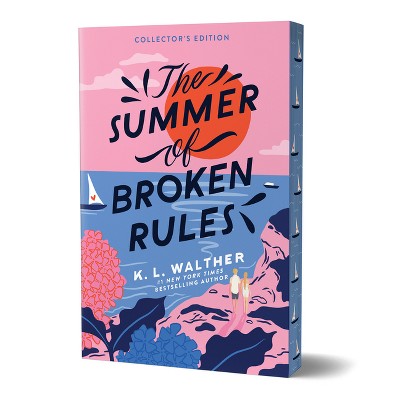
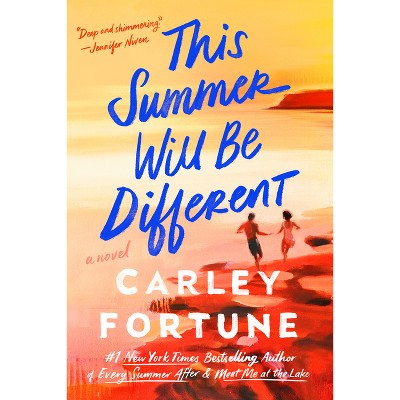
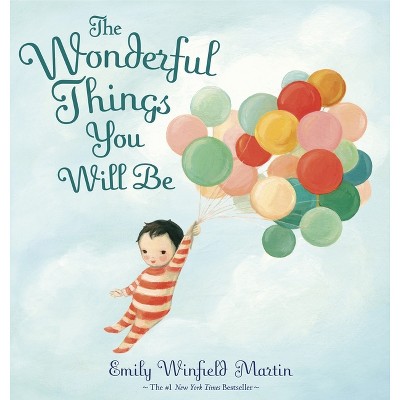
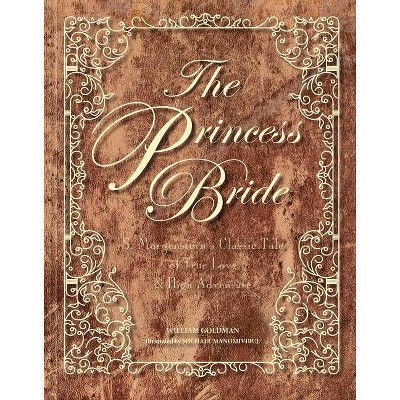
Trending Literary Fiction







